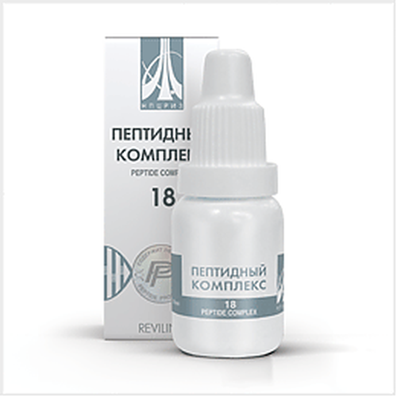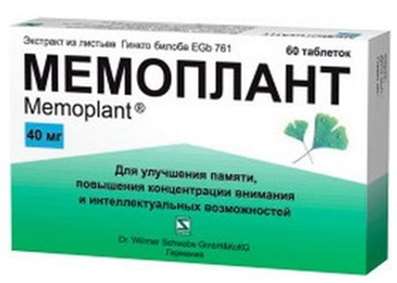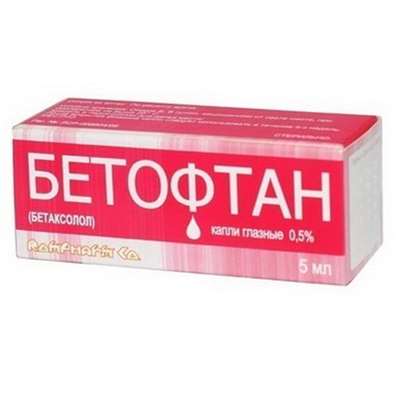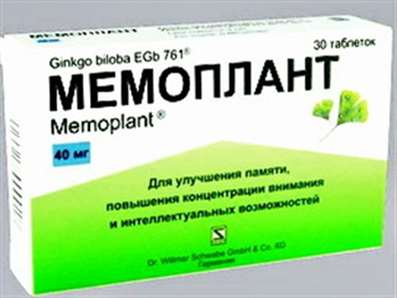Instruction for use: Thyreocomb
I want this, give me price
Active substanceLevothyroxine sodium + Liothyronine + Potassium iodide
ATX codeH03AA03 Levothyroxine in combination with lyotyronine
Pharmacological group of substance Calcitonin
Thyroid agent [Thyroid and parathyroid hormones, their analogs and antagonists in combinations / 575]
Nosological classification (ICD-10)
E01 Thyroid gland diseases associated with iodine deficiency and similar conditions
Hormonal deficiency of the thyroid gland due to iodine deficiency in the body, Goiter endemic, Iodine deficiency alimentary state, Iodine deficiency disease, Iodine Deficiency, Endemic cretinism
E04.0 Non-toxic diffuse goiter
Diffuse nontoxic goiter, Diffuse euthyroid goiter
Composition and form of release
Tablets 1 table.
Levothyroxine 0.07 mg
Lyotyronine 0.01 mg
Potassium iodide 0.15 mg
Auxiliary substances: lactose monohydrate; corn starch; gelatin; Magnesium stearate; Silicon dioxide colloid; Glycerin 85%; Sodium hydroxide; talc; Methylparahydroxybenzoate; Propyl parahydroxybenzoate
In bottles of 40 pcs .; In the box 1 bottle or in a blister 10 or 25 pcs .; In the box 2 blisters (10 pcs.) Or in the box 2 and 4 blisters (25 pcs.).
Description of dosage form
Round, flat cylindrical tablets of white color, with bevelled edge.
pharmachologic effect
Pharmacological action - thyroid.
The preparation of synthetic hormones of the thyroid gland (levothyroxine and lyotyronine) and potassium iodide, which is a structural element in the synthesis of thyroid hormones (thyroxine and triiodothyronine). Replenishes the deficiency of thyroid hormones. Increases the need for tissues in oxygen, stimulates their growth and differentiation, increases the level of basal metabolism (proteins, fats and carbohydrates). In small doses anabolic, and in large - catabolic effect. Inhibits the production of TSH. Strengthens energy processes, has a positive effect on the functions of the nervous and cardiovascular systems, liver and kidneys.
Pharmacokinetics
When ingestion, levothyroxine is absorbed almost exclusively in the upper part of the small intestine (up to 80% of the dose of the drug taken on an empty stomach is absorbed). Cmax in the serum is reached approximately 6 hours after ingestion. After absorption, more than 99% of the drug binds to serum proteins (thyroxine-binding globulin, thyroxine-binding prealbumin and albumin). The therapeutic effect is observed 3-5 days after the initiation of oral therapy. Levothyroxine is metabolized mainly in the liver, kidneys, muscles, brain tissues. Metabolites are excreted in urine and bile. T1 / 2 levothyroxine - 6-7 days.
After oral administration, lyotyronine is absorbed mainly in the small intestine in an amount of 78-95% of the dose taken. Cmax in plasma is achieved in about 2-3 days. The therapeutic effect stops after 7-9 days after the end of therapy. 90.7% of the lyotyronine binds to thyroxin-binding globulin and in a small amount to the thyroxine-binding prealbumin, as well as albumin. During pregnancy or after treatment with estrogens, there is an increase in the binding ability, with pronounced hypoproteinemia, the ability to bind can decrease. Lyotyronin is metabolized primarily in the liver, kidneys, muscles, brain tissue. T1 / 2 litiotronin - 24 h.
Absorption of inorganic iodine in the small intestine is almost 100%. Iodine is excreted in the urine.
Indication
Hypothyroidism.
Treatment of euthyroid goiter.
Prevention of recurrence of goiter after resection of the thyroid gland.
Contraindications
Increased individual sensitivity to the drug, thyrotoxicosis, acute myocardial infarction, grade III-IV angina pectoris, acute myocarditis, untreated adrenocortical insufficiency, herpetiform dermatitis (Dühring's disease).
With care - diseases of the cardiovascular system: IHD (atherosclerosis, stenocardia of the I-II functional class, myocardial infarction in the anamnesis), heart failure, arterial hypertension, tachycardia, tachyarrhythmia; Diabetes mellitus, diabetes insipidus, severe long-term hypothyroidism, malabsorption syndrome, elderly patients (dose adjustment possible).
pregnancy and lactation
During pregnancy and breastfeeding, thyroid hormone therapy prescribed for hypothyroidism should continue. The number of thyroid hormones secreted with breast milk during breastfeeding (even when treating with high doses of the drug) is not enough to cause any disturbances in the child. However, during breastfeeding, the drug should be taken with caution, strictly at recommended doses under the supervision of a doctor.
Side effects
With a properly selected dose of side effects are not observed. There may be allergic reactions, the progression of heart failure and angina pectoris. Very rare reactions of hypersensitivity in combination with "iodine" rhinitis, iododerma, exfoliative dermatitis, Quincke's edema, iodine fever, iodine acne, edema of the salivary glands. If there are side effects, Thyreocomb should be discontinued and informed by the attending physician.
Interaction
With simultaneous application with phenytoin, salicylates, dicumarol, clofibrate, furosemide in high doses (250 mg), the action of Thyreocombum is intensified, since The content of thyroid hormones not connected with proteins of the blood plasma increases. Thyreocombum strengthens the effect of indirect anticoagulants, which may require a reduction in their dose. The use of tricyclic antidepressants with Thyreocomb can lead to an increase in the action of antidepressants. Thyroid hormones can increase the need for insulin and oral hypoglycemic drugs. More frequent monitoring of blood glucose levels is recommended during the periods when the drug was started and when its dosage regimen is changed. When used simultaneously with potassium-sparing diuretics potassium iodide can lead to an increase in the level of potassium in the blood. Thyreocombum reduces the negative chrono- and dromotropic effects of cardiac glycosides. With simultaneous application of colestyramine, colestipol and aluminum hydroxide reduce the plasma concentration of the drug due to inhibition of its absorption in the intestine, so Thyreocomb is recommended to be taken 4-5 hours before taking these medications. When used simultaneously with anabolic steroids, asparaginase, tamoxifen, pharmacokinetic interaction at the level of binding to the protein is possible. The use of estrogen-containing drugs increases the content of thyroxine-binding globulin, which may increase the need for Thyreocomb in some patients. Somatotropin with simultaneous application with Thyreocomb can speed up the closure of epiphyseal growth zones. The intake of phenobarbital, carbamazepine and rifampicin can increase the clearance of levothyroxine and require an increase in the dose of Thyreocomb.
Dosing and Administration
Inside, 30 minutes before breakfast, without chewing, squeezed a small amount of liquid, once. The daily dose of the drug is selected by the attending physician individually on the basis of clinical and laboratory data. Usually, treatment starts with 1/2 table. Thyreocomb in a day. Depending on the individual needs, the initial dose can be gradually increased every 1-2 weeks to the maintenance dose - 1-2 tablets. in a day. In elderly patients with cardiovascular diseases, in patients with adrenocortical insufficiency and in persons suffering from epilepsy, the period of setting the dose of the drug and adapting to it can increase up to 4-6 weeks or more. The drug should be taken regularly. The duration of the drug is determined by the attending physician. Patients are advised not to change or stop the treatment prescribed by the doctor.
Overdose
Symptoms of thyrotoxicosis (especially if the dose is increased too quickly at the beginning of treatment): palpitations, heart rhythm disturbances, finger tremors, internal anxiety, insomnia, excessive sweating, weight loss, diarrhea.
Treatment: Depending on the severity of symptoms, a doctor may recommend a reduction in the daily dose of the drug, a break in treatment for several days, the appointment of beta-blockers. After the disappearance of side effects, treatment should be started with caution from a lower dose. In acute overdose and intoxication, it is recommended to stop taking the drug and to conduct a follow-up examination. Thirustatic agents are not recommended. When the drug is used in very high doses, plasmapheresis is indicated.
special instructions
With IHD, heart failure or tachyarrhythmias, more frequent monitoring of thyroid hormone levels is required. Particular care should be taken when prescribing the medication to the elderly. Treatment at them should be spent in lower doses. When using the drug in children with epilepsy, the probability of an increase in the number of convulsive seizures should be considered. The use of Thyreocomb in patients with diabetes mellitus, diabetes insipidus or adrenocortical insufficiency may lead to an increase in the severity of these diseases. During this period, careful selection of treatment means for these diseases is required. When hypothyroidism, caused by damage to the pituitary, it is necessary to find out whether there is a concomitant failure of the adrenal cortex. In this case, the replacement therapy of GCS should be started before the beginning of treatment of hypothyroidism with thyroid hormones in order to avoid the development of acute adrenal insufficiency. The drug does not affect the professional activities associated with driving vehicles and controlling mechanisms.
Storage conditions
In dry, the dark place at a temperature of 15-25 ° C.
Keep out of the reach of children.
Shelf life
3 years.
Do not use after the expiry date printed on the package.

 Cart
Cart





